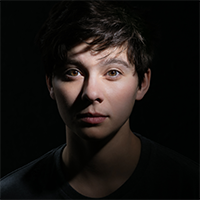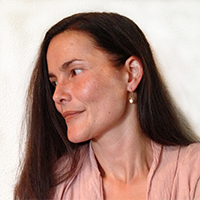Tom Howard/Margaret Reid Poetry Contest 2020
Congratulations to the winners of the 2020 Tom Howard/Margaret Reid Poetry Contest!

First Prize $3,000 Traditional Verse
Kayleb Rae Candrilli, Ghazals Connected as Though Cargo Freights
Honorable Mention $200
- Threa Almontaser, Catasterism, Poetry
- Amber Edwards, Why I Don’t Use the Word Nigger, Poetry
- Maria Greer, End-of-Term Exam, Poetry
- Kathryn Etters Lovatt, Everything Is Normal (Unless You Know Better), Poetry
- Anne Delana Reeves, Deer Season, Poetry
- Judith Antelman, To Be Continued, Traditional Verse
- R.D. Bailey, dementia, Traditional Verse
- Hannah Louise Poston, The News, Traditional Verse
- Anna Scotti, DC, 1978, Traditional Verse
- Imane Terhmina, American Alien, Traditional Verse
Judge Soma Mei Sheng Frazier comments on the winning entries
The urgency of poetic dialogue is perhaps never as palpable as in times of tumult, conflict, and challenge. Throughout the past year, then, the anonymous strangers who submitted work to the competition did me a great kindness: lit the darkest days with vivid imagery, smoothed the roughest nights with literary artistry, and served as a welcome reminder that at least 3,657 open and agile minds (with 5,785 poems) were actively engaged in thoughtfully decoding and advancing our global conversation.
"Hey," my spouse would say, finding me camped out in an armchair or sprawled across the floor, reading, "where are you now?"
"Pennsylvania kitchen," I'd murmur, "Listening to the train whistle while tenderness boils over. 'Tenderness is all over the stovetop.'"
"Now?" he'd ask, hours later, passing through the room again.
"'Skillet / disguised as a space / for Black people's safety.' Searching for some saving words."
"Now?"
"Waiting at the station, next to a woman with the system map tattooed on her forearm. And did you know that 'neurons in our brains coordinate our jaws & tongues to prevent us from making a meal of ourselves?'"
Suffice to say the poems linked below shoot from the hip, heart, and head—and their aim is true. So, prepare to be riddled with candor and courage, intellect and intimacy and human intuition; with the canny perspective these twelve poets bring.
The Winners
"Black Man on Fire" by Tony Keith Jr.
Tom Howard Prize for verse in any style
"When I write, I'm dangerous:" This shrewd poem writhes on the page and rings in the ear, refusing to sit still or go silent, slicing and sifting, simmering and scalding till at last it becomes its own salve. Here, the poet balances a breakneck pace and expert craft with introspection and a clear-eyed reverence for the calm catharsis of writing itself.
"Ghazals Connected As Though Cargo Freights" by Kayleb Rae Candrilli
Margaret Reid Prize for verse that rhymes or has a traditional style
Just as a sequence of interlocking sonnets can constitute a crown or wreath, "Ghazals Connected As Though Cargo Freights" is a tightly loaded train swerving from the speaker's childhood through perilous and tender adolescence to the self-actualization of adulthood—against an unmistakably American backdrop of forests and parking lots, cornfields and construction sites, dumpsters and dart leagues and milkweed and Monarchs and "indelible and violent mistakes". Rest assured that each freight car is laden with essential goods, some inherited, others earned or invented.
Honorable Mentions: Tom Howard Prize
"Catasterism" by Threa Almontaser
"I wish / we could bless ourselves / into fast comets, firecrackers, / the pearled wilderness of the moon." When a hero is transfigured by catasterism into a celestial body, finding a place among the stars to "flash paths for the lost, / catch and groom the wish a little girl whispers..." does it shed gravity or bear the heavens' weight? Does it lose track of all earthy things or mark time till it's noticed and named? Here is the answer, pressed into a concrete poem, made tangible to all of us below.
"Why I Don't Use the Word Nigger" by Amber Edwards
This trenchant poem lays bare the iterative, interrelated, and exhausting processes of privately and publicly revising one's opinions, identity, and lexicon (in the moment, on the page, or over the course of years) in a nation that has judged [black] people, bound and burnt [black] people, then turned to [black] people demanding help and redemption. "I think we're talking past each other." Here, though, the author speaks directly to us—whether we are [Black] [black*] [Mexican] [White] [white] [Native American] [Japanese] [multiracial] or some other [?] confusion of [?] constructs [?]—combining candor and artistry to make everything mercifully clear.
"End-of-Term Exam" by Maria Greer
Which of the following statements is true? 1. The bespoke beauty of a nonce form, custom-made for a single poem, is that it puts content before convention, forbidding the tail to wag the dog. 2. "End-of-Term Exam" plays strategically with structure to create something dire, inciting, and unpredictable. (Underline all that apply.)
"Everything Is Normal (Unless You Know Better)" by Kathryn Etters Lovatt
Like a tricky childhood, this poem starts out feeling like a comfy enough fit; the only fit we know, at least. Only once we're past it, glancing back, do we understand that not every childhood is a cilice that scrapes the skin; a lotus shoe to shape a broken foot. Not everyone's pantry hides foil-wrapped phones. Not everyone's bedclothes buzz with bees. Balancing the literal with the figurative, the closing lines of "Everything is Normal (Unless You Know Better)" are as uncomfortable, and as miraculous, as the death of our own ignorance.
"Deer Season" by Anne Delana Reeves
Sacrificial horses and Appaloosa ponies. Near rhyme, internal rhyme, couplets, quatrains. Archeological finds and unearthed memories of fireflies restless in their jars like "girls inside their bedrooms..." Motifs, meter, enjambment, personification. "Deer Season" employs a multitude of poetic devices in traditional and unexpected ways, like a resourceful hunter using every part of the prey, like "Rosemarie rolling her black hair // on tin cans..."
Honorable Mentions: Margaret Reid Prize
"To Be Continued" by Judith Antelman
"Define history." And this poem does. "Define peace." And this poem does. But—as in every commanding pantoum—the definitions evolve steadily through reverberation and recontextualization, metaphor, and metamorphosis. In six pensive quatrains, "To Be Continued" makes good on its own implication by inviting us into an ongoing narrative, leading us to a cliffhanger and singing us into suspense.
"dementia" by R.D. Bailey
Submitting any nine-word poem to a competition is risky: as poets, we're taught to distill every line—yet extracting too much reduces our work to something easily overlooked. Moreover, haiku can be confusing. Grade schools define it as a three-line form with a 5/7/5 syllable count; grad schools, as an unrhymed form incorporating three phrases, 17 phonemes, a kigo, and a kireji; and the Academy of American Poets defines haiku as a form of poetry speakable in a single breath, focused on a brief moment and evoking sudden enlightenment through "provocative, colorful images". "dementia", then, reveals the poet's boldness and mastery. It epitomizes, simultaneously, a jolt of keen perception and a meticulous undertaking.
"The News" by Hannah Louise Poston
If we woke one day to find Robert Frost among us again, sipping coffee at some New England breakfast table, his lover's quarrel with the world reignited as he scrolled through "The News", we might catch him nodding his head. Yes: the world will end in fire. Yes: in these ominous and dazzling days, it's only proper that a judicious poet—one adept at melding tradition with innovation, allusion with subversion, ode with elegy—should craft this timely memento mori for all of us, for our earth, for "being heartbroken, and being left wing, / and women laughing for the sake of it..." for "All things..." Yes, Frost might nod ruefully. And, reading the poem over his shoulder, we might find ourselves nodding too.
"DC, 1978" by Anna Scotti
Six photographic tercets take us straight to "DC, 1978". Whether we've been there before or not, we find ourselves sightseeing as tourists in the speaker's distant past—leaning out the window to call to a boy she knew, tiptoeing home at dawn under the "fruit-bright sky", vibrating with youth in the bumbling boredom of a hometown that we feel, if only briefly, is ours too.
"American Alien" by Imane Terhmina
"dear Europe", this epistolary poem opens before shifting to address America in a dispatch that weighs allegiance with treachery; security with self-sabotage. "American Alien" reminds us of how unnatural naturalization is; of the sometimes-steep cost of belonging, and how a national anthem can be a siren song luring us in, or a rallying cry that spits us out. It is an honor to help deliver this intimate letter to its intended recipients.
Read our press release about the winners.
Learn more about the Tom Howard/Margaret Reid Poetry Contest.
Contest Judges

Soma Mei Sheng Frazier
Soma Mei Sheng Frazier is the final judge of our Tom Howard/Margaret Reid Poetry Contest. Soma's third prose chapbook, Don't Give Up on Alan Greenspan, was selected as the winner of CutBank's 2018 contest and released in 2019. Her previous fiction chapbooks—Salve (Nomadic Press) and Collateral Damage: A Triptych (RopeWalk Press)—earned praise from Nikki Giovanni, Antonya Nelson, Sarah Shun-lien Bynum, Molly Giles, Michelle Tea, and others. In 2015 she founded COG, a multimedia literary publication that she ran with her undergraduate students at Cogswell, which has featured Dave Eggers, Opal Palmer Adisa, Gish Jen, Denise Duhamel, and many more. Read this selection of poems and listen to her read with other Nomadic Press authors on KPFA 94.1 FM. Read Soma's brief Glimmer Train essay on literary craft.
Soma recently relocated from California to New York for a professorship at SUNY Oswego. Her sweet tooth demands sugar in everything but literature. She is now busy revising a novel.
Contest Judges

Jim DuBois
Jim DuBois assists with the judging of our Tom Howard/Margaret Reid Poetry Contest and previously with our North Street Book Prize. He studied writing and computers at Hampshire college. Now he spends his time inventing games, writing poetry and making art.








